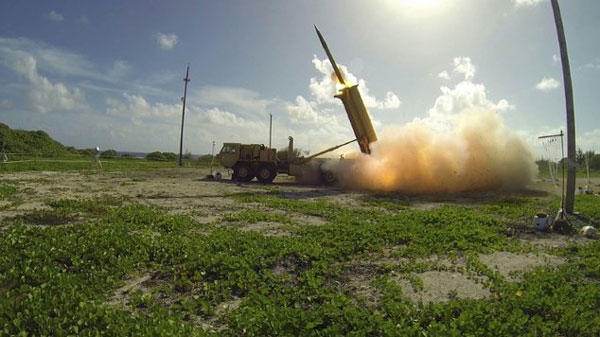
Beijing, China | AFP | From Twitter threats to Tomahawk missiles, US president Donald Trump’s unorthodox and seemingly impulsive approach to foreign policy has unsettled China, piling new pressure on its hands-off North Korea policy.
As tensions rise on the Korean peninsula, Beijing appears alarmed by Trump’s strident pronouncements as it tries to figure out how to manage the billionaire politician, who insists China handle the Pyongyang problem or suffer the consequences.
“President Trump’s penchant for an unpredictable foreign policy does not sit well with Beijing, which calibrates its approach based on careful assumptions of US consistency,” said Tiffany Ma of the DC-based National Bureau of Asian Research.
Trump’s missile barrage on Syria last week and decision to drop the largest non-nuclear bomb ever deployed in combat on Afghanistan Thursday revealed his willingness to shake up strategy and conveyed an implicit warning that he is not afraid to use force.
“North Korea is a problem, the problem will be taken care of,” Trump said after the “Mother of All Bombs” was dropped, amid reports of activity at a North Korean nuclear test site ahead of Saturday’s 105th anniversary of the birth of the country’s founder.
Beijing has long opposed dramatic action against Pyongyang, fearing the regime’s collapse would send a flood of refugees across its borders and leave the US military on its doorstep.
But “the US has run out of patience,” analyst Ma said.
Trump tweeted Tuesday that “if China decides to help, that would be great. If not, we will solve the problem without them!”
The stick was accompanied by a carrot, with Trump noting “I explained to the President of China that a trade deal with the U.S. will be far better for them if they solve the North Korean problem!”
The next day, Chinese President Xi Jinping spoke with Trump on the phone, calling for calm as a US Navy aircraft carrier-led strike group headed to the region in an unmistakable gesture.
– High stakes –
Trump’s behaviour has clearly rattled Beijing, the North’s sole major ally and economic lifeline, pushing it to take a tougher line against its neighbour, including suspending coal imports from the country for the remainder of the year.
“The US might itch to take action against North Korea on its own if Beijing chooses to do nothing. It seems to be a much better choice now for Beijing to get more actively involved,” said University of Hong Kong historian Xu Guoqi.
Tensions on the peninsula have soared this week amid speculation of a possible sixth nuclear test, following two last year, as Pyongyang works to develop a long-range weapon that could strike the US.
“China likely recognises that Pyongyang’s technical progress has increased Washington’s threat perception and sense of urgency,” Michael Kovrig of the International Crisis Group told AFP.
And there are signs that even Beijing is running out of patience.
An unusually blunt editorial in the state-run Global Times newspaper earlier this week warned Pyongyang that a new test would be a “slap in the face of the US government” and that Beijing would not “remain indifferent”, adding any further provocations could see China restrict oil exports to the country.
– Better idea? –
While Trump’s combination of threats and cajoling seems to have produced short-term results, it is not clear how effective it will be in the long-term.
Trump has said that he and Xi had excellent “chemistry” in their first meeting, telling the Wall Street Journal that the Chinese president explained the North Korea situation to him and “it’s not so easy.”
Beijing has repeatedly called for a “dual-track and suspension” approach where the North would stop its nuclear and missile activities in exchange for the US and South Korea halting military exercises.
But Washington has rebuffed the proposal. Under the Obama administration, the US ruled out diplomatic engagement until Pyongyang made a tangible commitment to denuclearisation.
Although the Trump administration’s policy remains unclear, US Secretary of State Rex Tillerson has echoed the stance.
Last month, a frustrated Chinese foreign ministry spokeswoman suggested that “if the US or another country has a better plan, a better proposal, they can bring it out.”
“China-US rivalry remains extremely high in the region, and there are reasons to doubt that such rivalry could be put aside to solve the Korean peninsula issue,” said Alice Ekman, Head of China research at the French Institute of International Relations.
“On the contrary, the rivalry may crystallise further on the Korean peninsula issue and exacerbate existing tensions.”
 The Independent Uganda: You get the Truth we Pay the Price
The Independent Uganda: You get the Truth we Pay the Price

